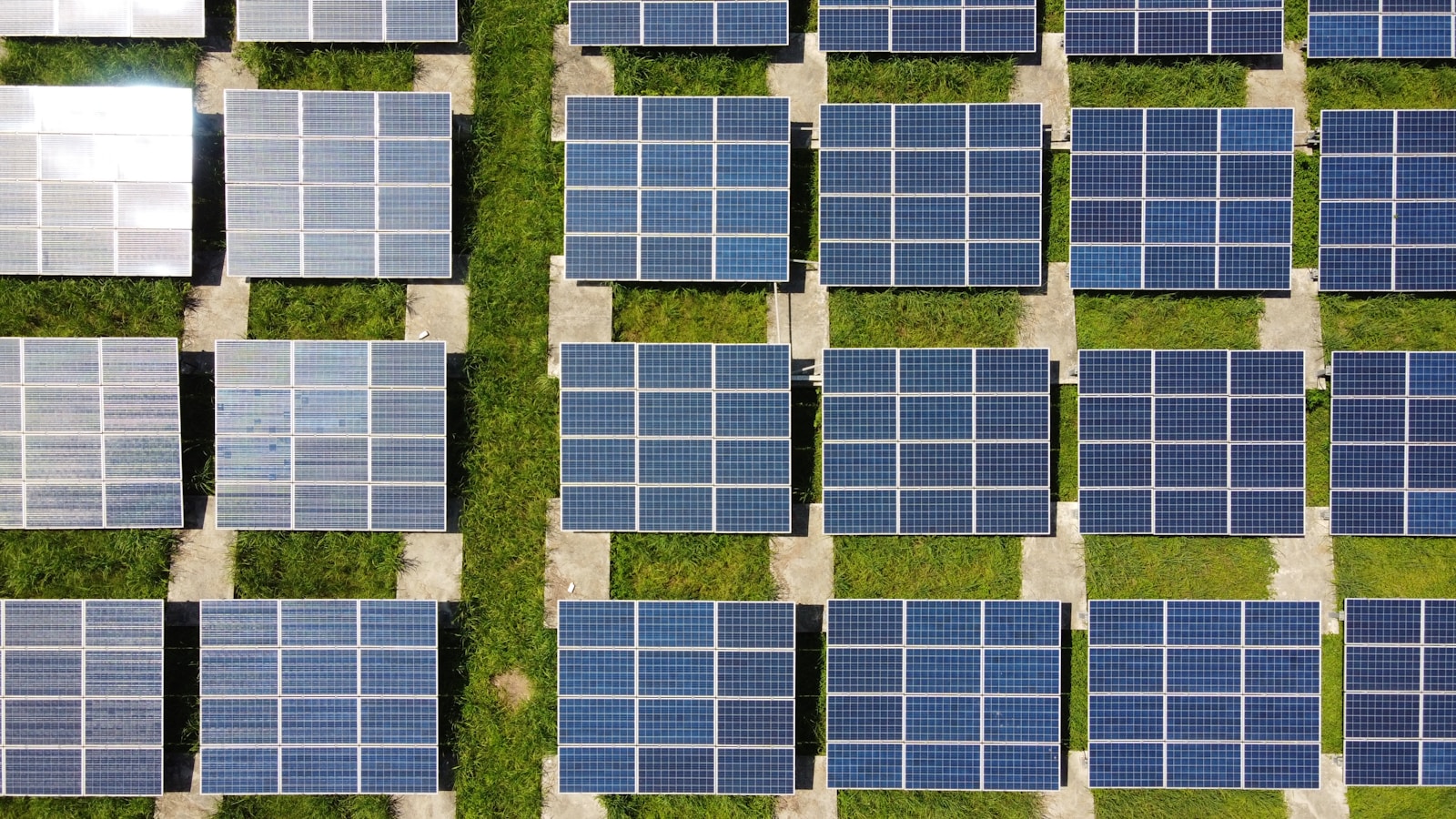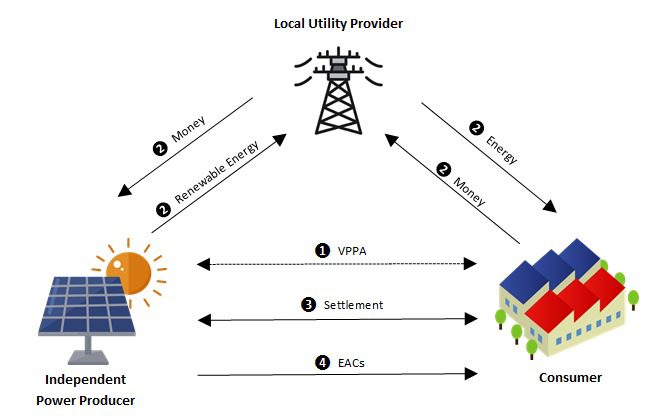Navigating Legal Considerations: Exploring Virtual Power Purchase Agreements

In renewable energy procurement, an innovative mechanism has emerged for corporations seeking to integrate sustainable practices into their operations: Virtual Power Purchase Agreements (VPPAs). While power purchase agreements (PPAs) and VPPAs both facilitate the procurement of renewable energy, VPPAs offer distinct advantages over traditional PPAs, particularly in a dynamic market like India.
Table of Contents
Why Choose a VPPA Over Physical PPAs
Traditional PPAs involve a direct physical connection between the buyer (usually a state downed electricity distribution company or a private party) and the renewable energy project, typically through the purchase of electricity generated on-site or from a nearby facility. While this model has been successful in driving renewable energy adoption, it has its own limitations, when the vision expands to global net zero commitments, lowering carbon footprint and exploring solutions beyond open access.
VPPAs, on the other hand, offer a more flexible and scalable approach. It is in the nature of a bilateral ‘virtual’ contract, which establishes an arrangement between a renewable energy developer and buyer – but does not involve power. In other words, unlike PPAs, VPPAs do not necessitate the physical transfer of energy between the two parties.
Operating Mechanism of a VPPA
The operating mechanism of a VPPA revolves around a few key components. Firstly, a renewable energy developer establishes a project, such as a wind farm or solar installation, and secures financing for its construction. Once operational, the developer seeks buyers interested in purchasing the renewable energy generated by the project.
Buyers enter into VPPAs with the developer, committing to purchase a predetermined quantity of energy over a specified period, typically several years. The buyer pays a fixed price for this energy providing cost certainty and potentially reducing long-term energy expenses.
The actual physical renewable energy generated by the project (brown power) is delivered into the grid, and the buyer receives Renewable Energy Certificates (RECs) or equivalent renewable attributes, which can be used to demonstrate environmental responsibility and compliance with sustainability goals.

Virtual Power Purchase Agreements in India: Potential and Benefits
India presents a unique opportunity for the expansion of VPPAs due to several factors. Firstly, the country boasts abundant renewable energy resources, including solar, wind, and hydroelectric power, making it an attractive destination for renewable energy investment. India has set ambitious targets for renewable energy deployment, aiming to achieve 500 gigawatts of non-fossil fuel-based energy by 2030.
Furthermore, VPPAs have the potential to address several challenges inherent in the existing renewable energy (RE) procurement mechanisms in India. Here’s how:
– Open access related constraints: Traditional RE procurement mechanisms, such as physical PPAs, often require the buyer to obtain open access approvals for the physical delivery of electricity. The uncertainty around open access approvals and charges often creates challenges for both project developers and buyers. VPPAs, however, enable buyers to support renewable projects located anywhere, thereby overcoming geographical constraints and expanding access to renewable energy resources across the country.
– Limited Options for Large Consumers: Large consumers of electricity, such as commercial and industrial entities, face challenges in meeting their sustainability goals and procuring renewable energy directly from projects. Existing mechanisms, such as rooftop solar installations or onsite generation, may not always be feasible or cost-effective for these consumers. VPPAs offer large consumers a viable alternative by allowing them to enter into long-term contracts to purchase renewable energy from projects, without the need for upfront capital investment or onsite infrastructure.
– Scale and Impact: While traditional RE procurement mechanisms have contributed to the growth of renewable energy capacity in India, they may not always be sufficient to meet the country’s ambitious renewable energy targets. VPPAs enable large-scale procurement of renewable energy by aggregating demand from multiple buyers and supporting the development of utility-scale projects. By driving economies of scale and fostering competition among developers, VPPAs can accelerate the deployment of renewable energy infrastructure and contribute to India’s transition to a low-carbon economy.
Roadblocks to Overcome for Increased VPPA Adoption
Despite the potential benefits, several challenges hinder the widespread adoption of VPPAs in India. One significant barrier is the lack of awareness and understanding among potential buyers regarding the mechanics of VPPAs. Many companies are unfamiliar with the concept of VPPAs or perceive them as complex and risky, leading to hesitation in adopting this procurement model.
Additionally, regulatory uncertainties and policy inconsistencies pose challenges for VPPA implementation. While the Indian government has introduced supportive policies for renewable energy, regulatory frameworks governing VPPAs remain changeable and subject to interpretation, creating uncertainty for developers and buyers alike.
Conclusion
As the global transition to renewable energy accelerates, VPPAs emerge as a powerful tool for corporations to procure renewable energy, mitigate climate risks, and advance sustainability goals. In India, VPPAs offer significant potential for driving renewable energy adoption, supported by abundant renewable resources, favorable policies, and increasing corporate demand for clean energy.
However, overcoming regulatory barriers, addressing financing constraints, and raising awareness among potential buyers are critical steps to unlocking the full potential of VPPAs in India. By addressing these challenges and fostering a supportive ecosystem for renewable energy development, India can position itself as a leader in sustainable energy transition and attract investment in clean energy infrastructure.
Contributed by – Mukund Gupta
King Stubb & Kasiva,
Advocates & Attorneys
New Delhi | Mumbai | Bangalore | Chennai | Hyderabad | Mangalore | Pune | Kochi
Tel: +91 11 41032969 | Email: info@ksandk.com
By entering the email address you agree to our Privacy Policy.